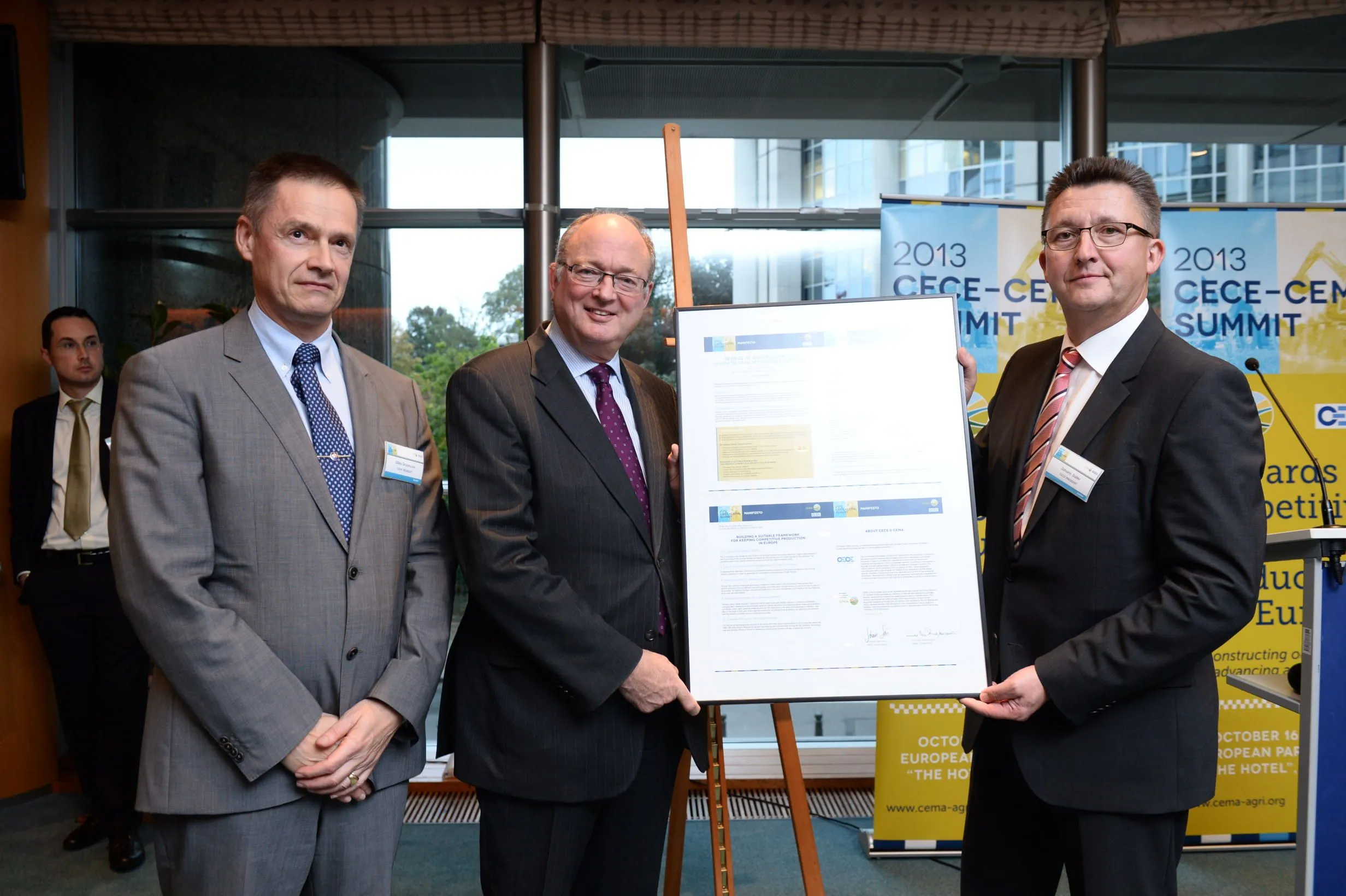The European Construction Industry Federation (FIEC) has welcomed the European Commission’s latest financial package to boost infrastructure investment in southern Europe.
December 3, 2014
Read time: 2 mins
The 6164 European Construction Industry Federation (FIEC) has welcomed the European Commission’s latest financial package to boost infrastructure investment in southern Europe.
A European Fund for Strategic Investments (EFSI) worth €21 billion will be set up to help generate €240 billion for long-term investments and €75 billion for small to medium size companies (SMEs) and mid-cap firms between 2015 and 2017.
European Commission Jean-Claude Juncker told the European Parliament on 26 November that Europe needs an ambitious investment plan after years of struggling to prop up the euro. "We need to send a message to the people of Europe and to the rest of the world [that] Europe is back in business," Juncker said.
FIEC President Johan Willemen said the announcement was a step in the right direction. “We welcome very much the creation of a European Fund for Strategic Investments, as announced by President Juncker,” he said.
“Even if we could argue about the amount of EU budget and European Investment Bank money initially mobilised in this fund, this is not the point today. The creation of this leverage instrument is very good news and a very good signal for EU and international private investors.”
Willemen said Juncker is “absolutely right” to target long-term investment for key EU infrastructure projects as well as financing for SMEs.
“These two priorities are very high on FIEC’s agenda, as we have stated in our manifesto for action for the EU term 20147-2019,” he said. “In addition to these two priorities, we should not forget projects in the field of energy efficiency, as they represent an essential link to EU energy and climate policy.
“It is true that some aspects of the plan still need to be clarified after today’s announcement, namely regarding the exact list of projects identified. However, there is not a minute to lose now: actions should materialise as quickly as possible to ensure the credibility and success of this ambitious plan,” Willemen said.
The EFSI funds will act as credit protection for new activities by the European Investment Bank.
These include long-term debt financing for higher-risk projects, subordinated loans and a variety of equity financing. Longer-term financing will focus on a range of sectors including transport, energy and the digital economy.
EFSI funding will also go to the European Investment Fund that will provide credit protection for activities designed to benefit SMEs. These include new venture capital injections, loan guarantees, securitisations and seed financing designed to offer micro-loans to SMEs.
A European Fund for Strategic Investments (EFSI) worth €21 billion will be set up to help generate €240 billion for long-term investments and €75 billion for small to medium size companies (SMEs) and mid-cap firms between 2015 and 2017.
European Commission Jean-Claude Juncker told the European Parliament on 26 November that Europe needs an ambitious investment plan after years of struggling to prop up the euro. "We need to send a message to the people of Europe and to the rest of the world [that] Europe is back in business," Juncker said.
FIEC President Johan Willemen said the announcement was a step in the right direction. “We welcome very much the creation of a European Fund for Strategic Investments, as announced by President Juncker,” he said.
“Even if we could argue about the amount of EU budget and European Investment Bank money initially mobilised in this fund, this is not the point today. The creation of this leverage instrument is very good news and a very good signal for EU and international private investors.”
Willemen said Juncker is “absolutely right” to target long-term investment for key EU infrastructure projects as well as financing for SMEs.
“These two priorities are very high on FIEC’s agenda, as we have stated in our manifesto for action for the EU term 20147-2019,” he said. “In addition to these two priorities, we should not forget projects in the field of energy efficiency, as they represent an essential link to EU energy and climate policy.
“It is true that some aspects of the plan still need to be clarified after today’s announcement, namely regarding the exact list of projects identified. However, there is not a minute to lose now: actions should materialise as quickly as possible to ensure the credibility and success of this ambitious plan,” Willemen said.
The EFSI funds will act as credit protection for new activities by the European Investment Bank.
These include long-term debt financing for higher-risk projects, subordinated loans and a variety of equity financing. Longer-term financing will focus on a range of sectors including transport, energy and the digital economy.
EFSI funding will also go to the European Investment Fund that will provide credit protection for activities designed to benefit SMEs. These include new venture capital injections, loan guarantees, securitisations and seed financing designed to offer micro-loans to SMEs.






